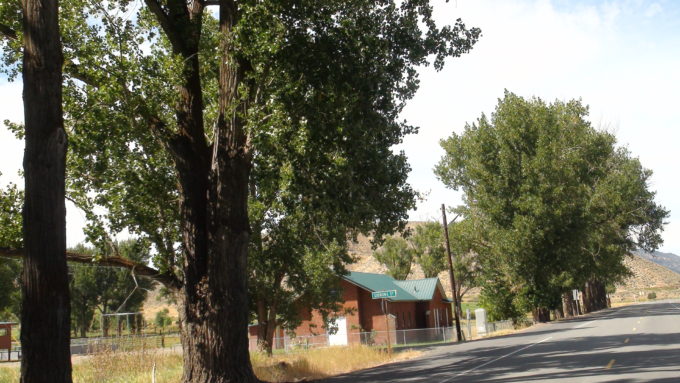
Monday, 3 August 2020
But you, beloved, remember the words which were spoken before by the apostles of our Lord Jesus Christ: Jude -17
Of verses 17 and 18, Albert Barnes notes –
“There is a striking similarity between these two verses and 2 Peter 3:1-3. It occurs in the same connection, following the description of the false and dangerous teachers against whom the apostle would guard them, and couched almost in the same words.”
The parallels between 2 Peter and Jude show that one was relying on the work of the other, and it helps explain Jude’s words of verse 3. There, he had originally intended to write about the common salvation, but decided instead to write to contend for the faith. Both apostles found it necessary to do so, and one probably used the letter of the other as a template to build upon.
For now, Jude says, “But you, beloved.” Unfortunately, the KJV – without any textual support at all – simply says, “But, beloved.” Arbitrarily leaving off the word “you” destroys the emphatic nature of the contrast that Jude is conveying. He has just spent the past nine verses highlighting the depraved nature of the “dreamers” he referred to in verse 8. Now, in order to completely contrast his readers to them, he says, “But you, beloved.”
With that complete contrast highlighted, he then says, “remember the words which were spoken before.” These words, being so close to what Peter says, show that Jude was probably written based on 2 Peter, not the other way around. There, Peter says –
“Beloved, I now write to you this second epistle (in both of which I stir up your pure minds by way of reminder), 2 that you may be mindful of the words which were spoken before by the holy prophets, and of the commandment of us, the apostles of the Lord and Savior, 3 knowing this first: that scoffers will come in the last days, walking according to their own lusts…” 2 Peter 1:1-3
A few things should be considered:
First, it is only supposition that Jude is writing his letter after Peter and using Peter’s letter as a guide, but it is a good one. The fact that Jude cites “the apostles,” and says “spoken,” could simply mean that the words of prophecy were consistent, and that he is building upon their spoken words. Being under inspiration, it would be natural for his words to be consistent with Peter’s (and the other apostles).
Secondly, Jude is not excluding himself as an apostle, even if he was not reckoned among the original twelve. The fact that he will, in the next verse, say, “they told you,” and not “they told us,” shows that he could be considered an apostle (just as Barnabas is noted as one in Acts 14:14).
Thirdly, it is evident that Jude’s audience had, in fact, heard the words of the other apostles because he says, “remember the words which were spoken before,” and then he completes the thought with, “by the apostles of our Lord Jesus Christ.” If the first two points cannot be dogmatically argued one way or another, this point is completely certain. Jude’s letter is a reminder of what had already been passed on.
The apostles of Jesus Christ carried a unified message concerning what Jude will next say, and it is thus a warning that needs to be carefully heeded by all. Unfortunately, the very people Jude will describe (and that he has been warning about) literally fill the churches of the world today. The guards were let down, and the unholy have flooded in.
Life application: This verse sets a clear marker showing that Jude is going to move from what he has been talking about – the ungodly that creep into the churches with their destructive lifestyles and teachings – and contrast them with sound instruction.
In stating, “you beloved,” it indicates that they are saved and faithful Christians who are residing in the fellowship of Christ and not merely heretics who proclaim such. The next word, “remember,” is the first command that he has given in the letter. After 17 painful verses of apostasy and woe, he can now start his directives.
In not directly quoting any of the earlier apostolic writings, he is authenticating their words as an overall body of law. What he says conveys concepts found throughout other writings, such as those given by Luke, Paul, Peter, and John. It is also implicitly understood that it is these writings, and any others by the apostles, that are authoritative.
Once the apostolic era ended, the Bible was sealed, and God’s revelation was complete. We no longer have the apostolic word coming from God – regardless of what some claim. We can be completely and absolutely sure that nothing else is to be placed on the same level as Scripture. This includes the writings from church bodies, the writings of supposed prophets, or the unstable claims of those who stand in the pulpit and claim a “word” from the Lord.
Rather, we have the word of the Lord, and it is recorded for all believers to conduct their lives in a manner prescribed by God Himself. Stand firm on the doctrine of the Bible, and don’t be led astray by anything else.
Heavenly Father, we do believe the Holy Bible is Your word. Help us to have faith that it stands alone as all that we need to conduct our lives in holiness and propriety. Keep us away from the careless and false claims of those who say they have some special prophetic or authoritative word from You. What more do we need than what You have given us in Your wonderful and precious word! Thank You for this marvelous treasure of wisdom and love. Amen.




